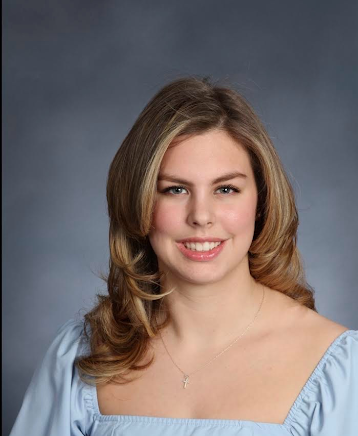 Gianna Tyahla
Gianna Tyahla
Associate Specialist
Global Poultry Marketing Co-Op at Merck & Co.
1. How did you learn what you wanted to pursue as a general English major?
I transferred to TCNJ from Fairleigh Dickinson University as an English Secondary Education major. Before taking a single education course, however, I decided to pursue a Marketing and Italian minor instead. Right after I graduated, I became a digital marketing intern for Princeton University Press, but I eventually discovered that marketing academic books was not something I was interested in. I then took on the role of a Sales and Marketing Coordinator at MJH Life Sciences, which mainly involves supporting internal teams in their interactions with pharmacists and medical professionals. This led me to pursuing a medical-related Master’s degree in Clinical Research, and now I have my current job at Merck & Co.
2. What do you enjoy most about your current job and how does it satisfy your core life values?
I value the international connections and conversations I have as part of Merck, and I am very happy that my team is full of friendly people who are easy to work with. My favorite part of my job, however, is being able to constantly interact with people from all over the world that I never would have met if it wasn’t for this job. Before my current position, I never understood how important diversity and global perspectives are, and I have a great satisfaction in watching the outreach that I’ve contributed to by learning about consumers and curating messages to them.
3. Do you have any advice/tips on networking?
Getting your first solid position is difficult. Employers will focus on your Bachelor’s degree instead of your minors, and they’ll expect you to have experience that you don’t have. Because of that, there is a great importance in networking and informational interviews. For the informational interviews, I recommend sending thank-you notes and creating memorable connections through jokes that’ll jog a person’s memory. When you have your name in as many people’s inboxes as possible, you have more opportunities for references of connections to hiring managers. You get job opportunities through making a good impression with connections and asking them to help build your network.
4. What about you appealed to employers hiring from nontraditional English major fields?
I admit that my ability to be very personable and gauge suitable tones during interviews has been a major advantage to me. Beyond that skill, my background in English and marketing allows me to write great cover letters that market myself according to what the job descriptions are looking for.
5. What do you wish that you could tell your younger self as they started job hunting?
I’d tell my younger self not to stress out over what the “next thing” is going to be and instead focus on making a good impact through networking and any available job opportunities. I strongly believe that everything you learn from a previous job will lead you to the “next thing”. The only thing you can control is what you have in your back pocket and how you communicate that information. Take advantage of alumni networks and pursue every possible opportunity without giving up after initial rejections. Don’t view your first job as the “end all, be all” of your career, continuing to be willing to try new things.
